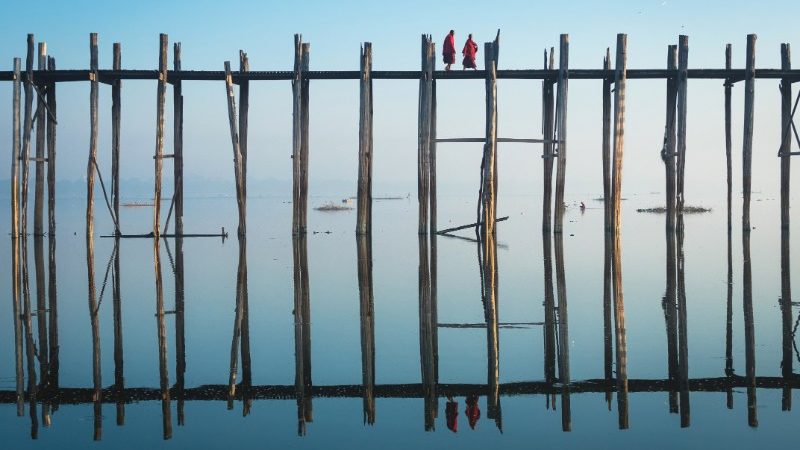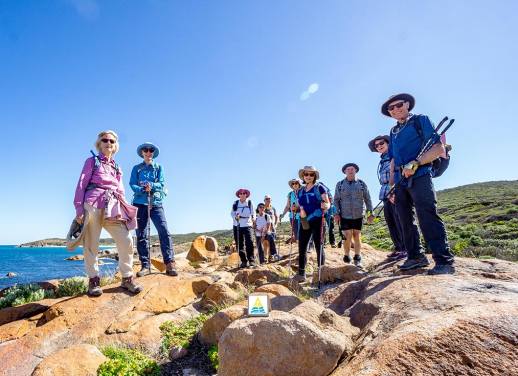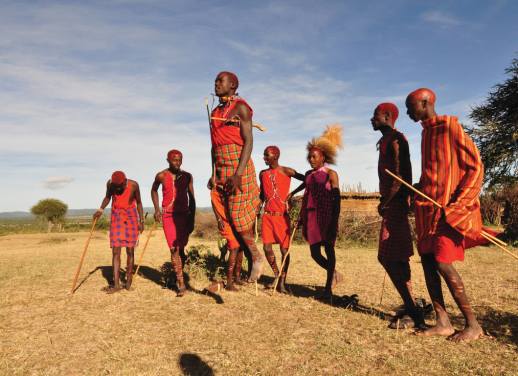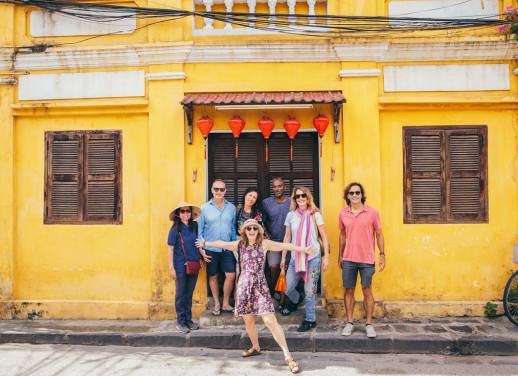This post was originally written in 2018 and most recently updated in 2024.
When it is discovered that a country is guilty of social or ethical injustice, demands for a travel boycott often follow.
Conscientious travellers can sometimes feel a moral obligation to avoid a country and often ask travel companies to participate in boycotts. They worry that travellers and the travel industry are ignoring the plight of others for the sake of a holiday if they visit a country plagued with human rights abuses. Or even worse, that tourism dollars are inadvertently supporting harmful regimes. While the decision to boycott a country for human rights violations might seem like an easy one, it’s not necessarily the most ethical.
As a global business that is passionate about responsible travel, we take human rights seriously. We’ve had to confront several ethical considerations in destinations all over the world throughout our 35-year history. The biggest determination of how and where we run trips is our confidence that we can do so ethically and offer an experience that’s real and impactful.
We bolster that confidence through mechanisms we’ve built into our operations and governance, which we’re constantly investing in, assessing and evolving. Our human rights policy and modern slavery statement have been updated within the past two years. In our most recent update of our human rights policy, we introduced the requirement for a global human rights assessment to take place every three years, alongside our B Corp recertification.
Since 2022, we’ve also added roles dedicated to social impact and ethical supply chain management, and we built processes for complaints so anyone inside and outside of Intrepid can raise concerns.
Along the way we’ve considered a range of views, including those from human rights organisations, and from our friends at ResponsibleTravel.com. While we acknowledge that each situation is different, we’ve come to realise that in many cases we don’t believe in travel boycotts.
We travel in more than 100 countries and have operations offices and teams on the ground in 27 countries. Having people on the ground in our destinations gives us an ability to gather insight into the issues at play and understand how and where we can make a difference.
We’ve baked due diligence into our supply chain, ensuring our suppliers adhere to our human rights standards, such as fair and decent working conditions and zero child labour and exploitation. We’ll remove suppliers and change our itineraries if there’s evidence of a transgression. One example is in India, where the carpet and rug sector is a recognised area of risk for child labour. In that country, we’ve assessed our preferred carpet sellers and connected with organisations who have provided guidance for updating our purchasing policy.
At the same time, we build our trips in ways that give voice to people who may be discriminated against. For example, we support First Nations experiences in Australia that educate travellers on the impacts of colonisation. Tibetan trip leaders on our Chinese trips share their perspectives with travellers. Our Women’s Expeditions champion the voices of women in places where women’s rights are still works in progress.
While the intention behind a boycott is to do the right thing, the reality is that travel boycotts often impact the wrong people. When tourism suddenly drops, it’s not just the government or military who feels the pinch; it’s the locals who’ve built their lives around the tourism economy.
Travel boycotts often isolate vulnerable people even more. The watchful eyes of travellers can help to keep governments and regimes in check. When this global gaze is removed, the situation often worsens.
We believe travel has the ability to be a force for good. It connects people. That’s why our trips include as much genuine local interaction as possible, because it exposes both our travellers and locals to the reality that we are all human. It encourages dialogue, something that can be quite powerful in places where censorship is prevalent. Travel can build understanding, makes us less prejudiced and more empathetic. All things that we need more of in the world right now.
What’s more, people who travel to these countries often return home with an improved understanding of what is going on, and a desire to make a difference. In the early days of Intrepid, our travellers were continually giving money to their trip leaders to pass on to community projects, so we established The Intrepid Foundation to improve transparency and accountability around the whole process. The Intrepid Foundation allows our travellers (or anyone hoping to make a difference) to give to vetted projects in the places they’ve visited. Since its creation in 2002, it has raised over $15.5 million for organisations around the world.
The decision to travel or not to travel somewhere is an individual choice. We respect the decision of those who choose to boycott a place or simply to go elsewhere, because there are so many places in the world that tourism can have a positive impact. That’s why we believe the best thing that we can do is ensure that wherever we go, we make a difference.
Feature image by R.M. Nunes via Shutterstock.




